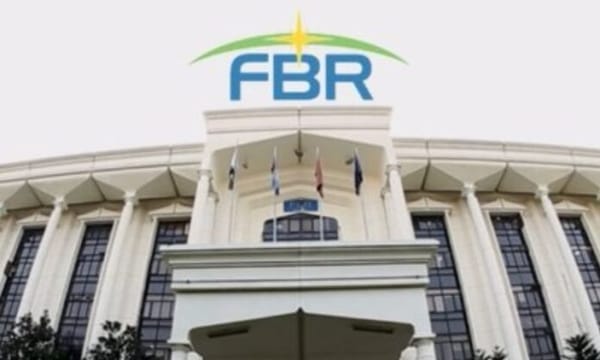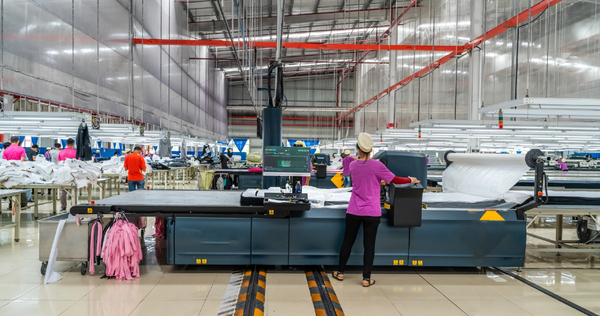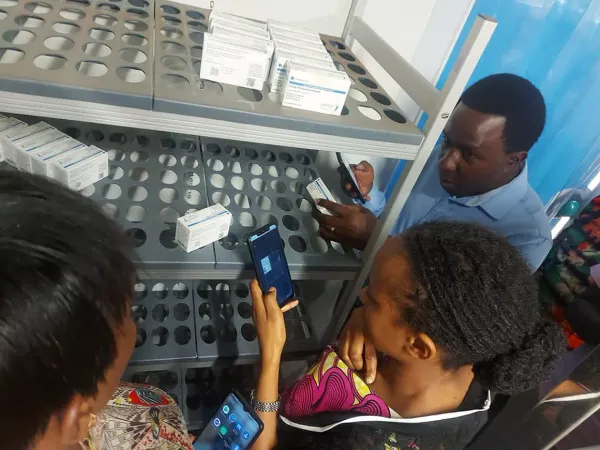
Track and Trace
Oman Expands Digital Tax Stamp Program to Excisable Beverages
Oman’s Tax Authority mandates digital tax stamps for beverages from 2025, ensuring tax compliance, transparency, and counterfeit prevention.

Track and Trace
Oman’s Tax Authority mandates digital tax stamps for beverages from 2025, ensuring tax compliance, transparency, and counterfeit prevention.

Track and Trace
FBR DG stresses the need for T&T for Oil Marketing Companies in Pakistan. Leading companies already operating internal traceability system.

Track and Trace
Discover how traceability systems are transforming the apparel industry, fostering sustainability, ethical practices, and consumer trust globally.

Track and Trace
The UK has been a frontrunner in implementing a Tobacco Track and Trace (TT&T) system to combat the illicit tobacco trade, which poses serious risks to public health, law-abiding businesses, and the economy. Introduced in 2019 as part of the UK’s commitment to the World Health Organization’

Track and Trace
Traceable labeling plays a crucial role in ensuring sustainability within the fashion supply chain and warehousing processes. As the demand for transparency, accuracy, and environmental responsibility increases, traceable labeling becomes essential. Advanced inspection systems help verify that labels are applied correctly and include accurate information such as barcodes, product details,

Track and Trace
Counterfeit and falsified medicines are a pervasive issue, especially in low- and middle-income countries, causing around 169,000 child deaths annually. To address this critical problem, UNICEF, in collaboration with global partners, launched the Traceability and Verification System (TRVST) in 2022. This system is a groundbreaking initiative designed to ensure

Track and Trace
A recent poll by Oceana reveals that a significant majority of American voters support the expansion of transparency and traceability measures in the seafood industry. The survey found that 89% of respondents are in favor of requiring that all seafood sold in the U.S. be fully traceable from its

Track and Trace
As the U.S. cattle industry faces increasing threats from disease outbreaks like foot-and-mouth disease (FMD), the need for modern traceability tools has never been more critical. The USDA’s animal disease traceability regulation, which mandates the use of electronic identification (EID) tags for cattle, is a crucial step in

Track and Trace
In today’s global market, ensuring supplier traceability is a critical challenge that companies across industries, including pharmaceuticals and electronics, must address. As supply chains become increasingly complex, the ability to track products and materials from their origin to their final destination is vital for ensuring quality, compliance, and ethical

Track and Trace
The United Nations Economic Commission for Europe (UNECE) has launched a Community of Practice aimed at improving traceability and transparency within the global garment and footwear industries. This initiative builds on a three-year challenge set by the European Union and UN Member States to prove the feasibility of sustainable practices

Track and Trace
The recent revelations about titanium sourced from a Chinese company for major aerospace manufacturers like Boeing and Airbus have exposed significant traceability issues that could pose serious public safety risks. The titanium in question was used in critical components of aircraft, yet the documentation provided was found to be questionable

Track and Trace
Pangaia's latest impact report reveals significant progress in sustainability, focusing on reducing carbon emissions, increasing the use of recycled textiles, and enhancing supply chain traceability. The brand, known for its commitment to eco-friendly practices, has successfully lowered its emissions through improved production methods and a higher percentage of